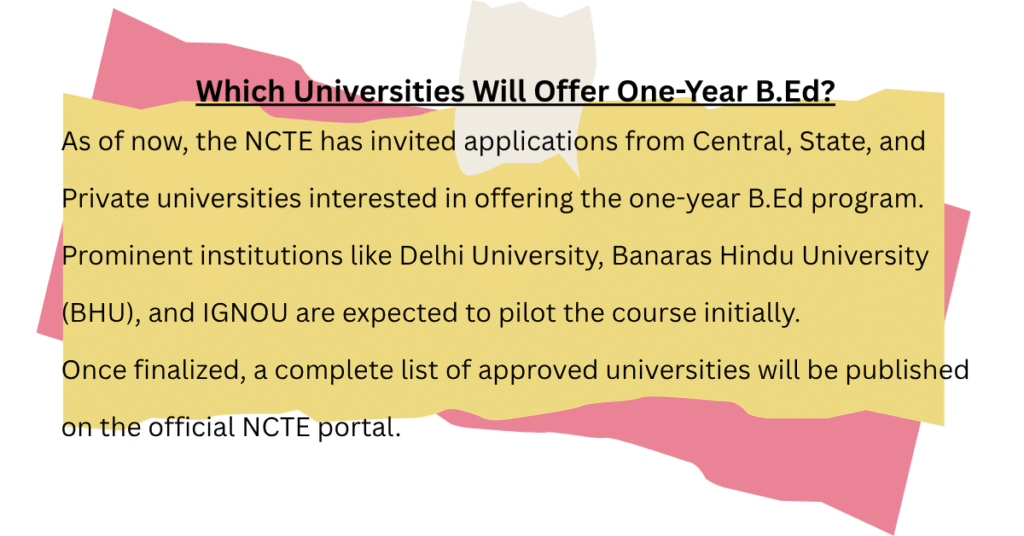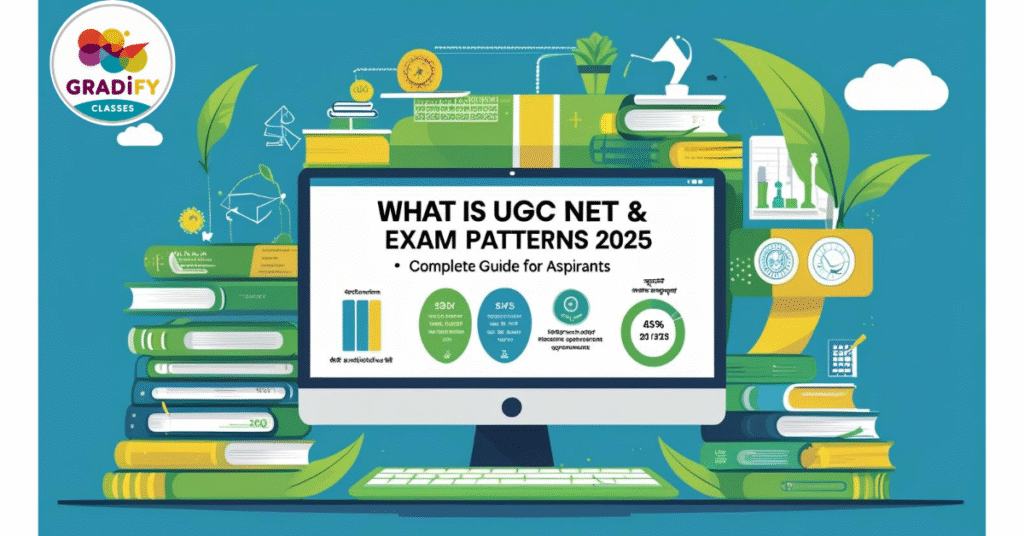The 1-Year B.Ed program has finally received official recognition in India. Find out when this new policy will be implemented, the eligibility criteria, benefits.
Introduction
In a landmark decision that could significantly reshape teacher education in India, the National Council for Teacher Education (NCTE) has granted recognition to the One-Year B.Ed (Bachelor of Education) program. This move is aligned with the reforms proposed in the National Education Policy (NEP) 2020, which aims to improve the quality, duration, and effectiveness of teacher training.
Many aspiring teachers and education professionals have long awaited this reform. But what does the recognition of a one-year B.Ed program mean, who is eligible, and when will it be implemented?
What is the One-Year B.Ed Program?
The One-Year B.Ed is a compressed teacher training program designed for candidates who already possess a Master’s degree (postgraduate qualification). Unlike the traditional two-year B.Ed course, this version allows eligible candidates to complete their teacher training in just one academic year.
This structure not only saves time but also brings India’s teacher training in line with international standards where one-year PGCE or equivalent programs are the norm.
Why Was This Change Introduced?
The traditional two-year B.Ed program was seen as repetitive and time-consuming, especially for postgraduate students who already have subject expertise. The NEP 2020 recommended a flexible and multidisciplinary approach to teacher education. Recognizing the prior knowledge and academic experience of postgraduates, the new one-year format:
-
Promotes efficiency in teacher training
-
Addresses teacher shortages in government and private schools
-
Enables working professionals to join the education field
-
Improves the quality and intensity of the curriculum
Who is Eligible for the One-Year B.Ed Course?
The NCTE guidelines have made it clear that this course will only be open to candidates with the following qualifications:
-
Master’s Degree (M.A./M.Sc./M.Com or equivalent) in a relevant school subject from a recognized university.
-
Minimum 55% marks in the postgraduate program (may vary slightly as per university norms).
-
Preference may be given to candidates with a background in teaching or related fields.
When Will the One-Year B.Ed Be Implemented?
According to the recent updates from NCTE, the implementation of the one-year B.Ed is likely to begin from the academic session 2025-2026. Universities and teacher training institutes across India will receive formal directives and curriculum guidelines before the rollout.
The NCTE and UGC are expected to issue a model curriculum and admission framework by the end of 2025, allowing affiliated institutions to start offering the program.
Benefits of the One-Year B.Ed Program
-
Time-Saving: Complete your professional qualification in one year instead of two.
-
Cost-Effective: Reduced tuition and accommodation expenses.
-
Focused Curriculum: More intensive, skill-based modules aligned with modern pedagogy.
-
Career-Oriented: Immediate entry into the teaching profession or eligibility for government exams like CTET, TET, and more.
-
Supports Lifelong Learning: Ideal for those transitioning from other careers to education.
How is the One-Year B.Ed Different from the Two-Year Program?
| Feature | One-Year B.Ed | Two-Year B.Ed |
|---|---|---|
| Duration | 1 Academic Year | 2 Academic Years |
| Eligibility | Postgraduates only | Graduates and Postgraduates |
| Curriculum Focus | Advanced pedagogy and specialization | Broad-based teacher training |
| Cost | Lower | Higher |
| Target Group | Experienced or academically qualified | Fresh graduates |
Which Universities Will Offer One-Year B.Ed?
As of now, the NCTE has invited applications from Central, State, and Private universities interested in offering the one-year B.Ed program. Prominent institutions like Delhi University, Banaras Hindu University (BHU), and IGNOU are expected to pilot the course initially.
Once finalized, a complete list of approved universities will be published on the official NCTE portal.

Challenges and Considerations
While this reform is welcome, there are some challenges that institutions may face:
-
Curriculum Development: A tighter syllabus needs to be carefully planned to maintain quality.
-
Faculty Training: Teachers must be prepared for a more intensive teaching model.
-
Assessment Mechanism: Effective and quick evaluation methods will be essential.
Still, with proper planning, these issues can be addressed in time for smooth implementation.
Conclusion
The recognition of the One-Year B.Ed program is a progressive step in Indian education policy. It reflects a shift toward efficiency, global standards, and professional flexibility. For many aspiring teachers, especially postgraduates, this opens up a faster and more accessible route into the teaching profession.
As the academic session 2025–26 nears, candidates are advised to stay updated through official announcements from NCTE, UGC, and their desired universities. The future of teacher education in India is evolving, and this reform is just the beginning.
FAQs – One-Year BEd Got Recognition
Q1. Has the one-year BEd course been officially approved in India?
Yes, the NCTE has officially recognized the One-Year B.Ed course for postgraduates.
Q2. Who is eligible for the one-year BEd program?
Only candidates with a master’s degree in relevant school subjects and minimum 55% marks can apply.
Q3. When will the one-year BEd be implemented?
The implementation is expected to begin from the 2025–26 academic session.
Q4. Is this program valid for government teaching exams like CTET or TET?
Yes, once approved and completed from an NCTE-recognized institution, the one-year BEd will be valid for all teaching eligibility exams.
Q5. Where can I apply for the one-year BEd course?
You will be able to apply at selected NCTE-approved universities and colleges. The list will be made available on the official NCTE website.
Written By: Deepa Tripathi


